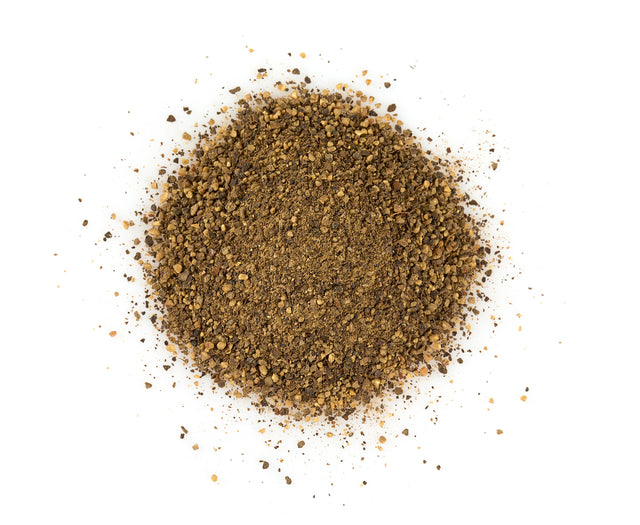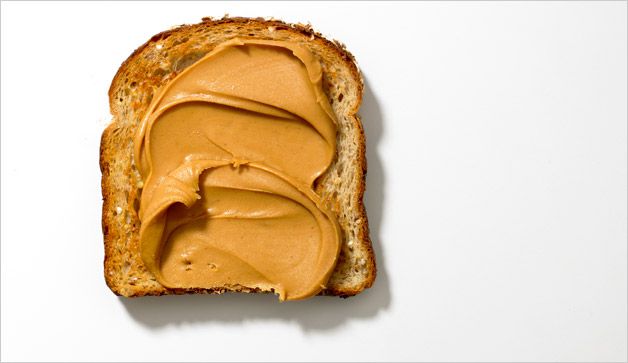When you were a kid, your mom probably stuffed your brown bag lunch with chewable Flintstone vitamins and you never questioned it. I mean how could you, you were eight. But you're older now and you have choices. Just because mom says it's good for you, doesn't necessarily mean that it's true. Right? We're going to find out, what the benefits are, and if you really need to take a multivitamin.
Should I Take A Multivitamin?
Ensuring nutritional adequacy is vital for your body. Micronutrients are required for nearly every metabolic and developmental bodily process. A well balanced, varied, and healthful diet is the best source of essential vitamins and minerals. However, that doesn't necessarily mean that you get all of those essential vitamins and minerals through your diet and the foods you eat.
Why You Need To Take A Multivitamin
1. Bridge Your Micronutrient Deficiencies
Micronutrient deficiencies exist - in all of us. Think about it. What did you eat yesterday? Or maybe think about what you didn't eat.
According to US Nutrition surveys, the majority of individuals who consume a multivitamin supplement, typically already have well-rounded diets, healthful eating habits, and take an active interest in their health and fitness just like you.
But sometimes, we don't get around to eating how we should. We eat out. We skip breakfast. We eat doughnuts. We get busy because life happens. We're not perfect! The benefit of taking a multivitamin is to get all the nutrients your body needs when you’re not perfect, which none of us are. It's critical to get the nutrients you need by improving your diet with wholesome, organic food sources. But it's important to use a multivitamin supplement on the not so perfect days. In no way should multivitamins be viewed as a way to replace a healthful diet. But multivitamins and other dietary supplements can help bridge the gaps in the micronutrient deficiencies that we all have. Especially if you're a flexible dieter!
RELATED ARTICLE IIFYM & Flexible Dieting: 5 Reasons Why It Does Not Work
It's extremely important to supplement your macronutrient intake with varied foods, which can provide an adequate amount of micronutrients, If you don't get a good handful of varied vegetables and fruit, then you need to take a multivitamin. Hidden Hunger or nutritional deficiencies that occur when you consume adequate calories, but inadequate micronutrients, happens to everyone. Hidden hunger is largely due to eating patterns dominated by energy-dense, but nutrient-poor foods [R]. Maybe mom thought you needed more than just the PB&J and Capri Sun to get all the nutrients you needed growing up to get all the nutrients you needed to have a healthful diet. Mom is starting to sound pretty smart.
2. Get The Nutrients Your Food Is Lacking In From Modern Farming Practices
A distributing nutritional trend has taken place over the last few decades - soil depletion.
Modern intensive farming practices have stripped increasing amounts of nutrients from the soils in which the crops we eat are grown. According to Scientific American, “It would be overkill to say that the carrot you eat today has very little nutrition in it—especially compared to some of the other less healthy foods you likely also eat—but it is true that fruits and vegetables grown decades ago were much richer in vitamins and minerals than the varieties most of us get today Sadly, each successive generation of fast-growing, pest-resistant carrot is truly less good for you than the one before.” [R]. With the amount of nutrients being depleted through modern day farming practices, it's crucial more than ever to supplement tand take a multivitamin.
A study done by Donald Davis and his team of researchers at the University of Texas, Austin studied U.S. Department of Agriculture nutritional data from both 1950 and 1999 for 43 different vegetables and fruits, finding “reliable declines” in the amount of protein, calcium, phosphorus, iron, riboflavin (vitamin B2) and vitamin C over the past half-century. Davis attributed this steady decline in the nutritional content to agricultural practices designed to improve crop traits (size, growth, pest resistance) while neglecting improvements in nutritional content. If you're not buying your vegetables and fruits from a local organic farmer (which, most of us are not) then chances are, the pesticides and fertilizers used on that produce have caused significant detriment to the nutritional content of your fruits and vegetables [R].
3. Nutrient Depletion
It’s important to know that the way you prepare your vegetables has a direct effect on the nutrient composition and makeup. Unless you eat all of your vegetables raw, you're actually depleting your vegetables of their adequate micronutrient content when you cook them. In a study published by the international journal of food science, cooking your vegetables can significantly reduce their associated nutritional content, especially the mineral bioavailability of iron and zinc [R]. Cooked or not, vegetables are obviously a much better food choice than some of the other selections you can make. But just because you eat vegetables, doesn’t mean they contain the essential nutrients your body needs to efficiently run all of its metabolic processes. Adding a multivitmain into your supplement protocol will help bridge the gaps in your diet and ensure you get the nutrients you need.
4. To Support Your Overall Health & Wellness
Eating patterns that include relatively high intakes of fruits, raw vegetables, nuts and whole grains are directly correlated with lower risks of heart disease, stroke, and cancer. Lean proteins and low-fat dairy products are also important sources of micronutrients to help prevent chronic disease and encourage overall health and wellness [R]. With the addition of a multivitamin supplement, you’re simply helping your body bridge the gaps in the nutrients you may not be getting in the daily-recommended amounts. The benefits of taking a multivitamin can help you in so many more ways than you think, when it comes to supporting energy levels, improve mood, sexual function, healthy aging, and overall vitality.
Do You Really Need A Multivitamin? Takeaway
The answer is, YES! We all have a common goal, to become healthier. Whether that means being around longer to watch your kids grow up, or getting stronger and building your endurance for your next Crossfit competition. The typical American Diet is nowhere near the general recommendations for fruit, vegetables, and whole grains, which are responsible for the large majority of micronutrients you derive through your diet. Even if you have an amazing diet, there are going to be days that you don't get the nutrients you need. We all have micronutrient deficiencies, and one of the only ways that you can ensure you receive the micronutrient profile your body needs to function properly is through supplementing with a multivitamin.
Need an amazing Multivitamin Supplement to help you bridge the gaps in your diet? Try SWOLVERINE's Multivitamin Today!
SWOLVERINE is an endurance athlete and active lifestyle brand. Made for the elite athlete, and the strong-willed our products were designed to fuel your athletic performance. We perform when you perform.
We believe that everyone can optimize not only their athletic performance but their human potential. The way we believe we can optimize performance is through transparency, clinically effective doses, and clinically proven ingredients with evidence-based outcomes. We provide the nutrients you need to power your active lifestyle.
References
- Hailu, Andinet Abera, and Getachew Addis. “The Content and Bioavailability of Mineral Nutrients of Selected Wild and Traditional Edible Plants as Affected by Household Preparation Methods Practiced by Local Community in Benishangul Gumuz Regional State, Ethiopia.” International Journal of Food Science 2016 (2016): 7615853. PMC. Web. 8 Sept. 2017.
- Hu FB. Plant-based foods and prevention of cardiovascular disease: an overview. Am J Clin Nutr. 2003;78:544S–551S.
- Boffetta P, Couto E, Wichmann J, Ferrari P, Trichopoulos D, Bueno-de-Mesquita HB, van Duijnhoven FJ, Buchner FL, Key T, Boeing H, Nothlings U, Linseisen J, Gonzalez CA, Overvad K, Nielsen MR, Tjonneland A, Olsen A, Clavel-Chapelon F, Boutron-Ruault MC, Morois S, Lagiou P, Naska A, Benetou V, Kaaks R, Rohrmann S, Panico S, Sieri S, Vineis P, Palli D, van Gils CH. et al. Fruit and vegetable intake and overall cancer risk in the European Prospective Investigation into Cancer and Nutrition (EPIC) J Natl Cancer Inst. 2010;102:529–537.
- Ward, Elizabeth. “Addressing Nutritional Gaps with Multivitamin and Mineral Supplements.” Nutrition Journal 13 (2014): 72. PMC. Web. 8 Sept. 2017. https://www.ncbi.nlm.nih.gov/pmc/articles/PMC4109789/
- “Dirt Poor: Have Fruits and Vegetables Become Less Nutritious?” Scientific American, www.scientificamerican.com/article/soil-depletion-and-nutrition-loss/. Accessed 8 Sept. 2017.














